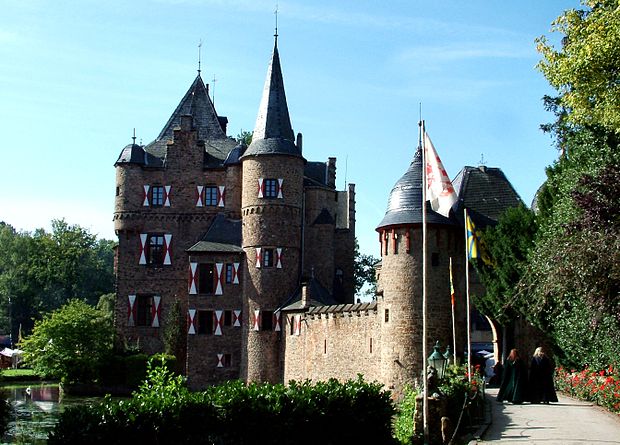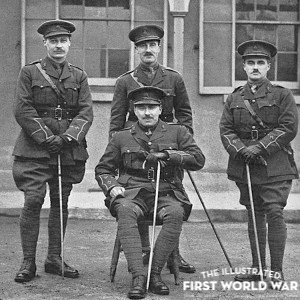English Corner
http://blogs.getty.edu/iris/getty-thesaurus-of-geographic-names-released-as-linked-open-data/
"The Getty Thesaurus of Geographic Names is a resource of over 2,000,000 names of current and historical places, including cities, archaeological sites, nations, and physical features. It focuses mainly on places relevant to art, architecture, archaeology, art conservation, and related fields."
"The Getty Thesaurus of Geographic Names is a resource of over 2,000,000 names of current and historical places, including cities, archaeological sites, nations, and physical features. It focuses mainly on places relevant to art, architecture, archaeology, art conservation, and related fields."
KlausGraf - am Mittwoch, 3. September 2014, 16:38 - Rubrik: English Corner
noch kein Kommentar - Kommentar verfassen
KlausGraf - am Montag, 1. September 2014, 17:52 - Rubrik: English Corner
noch kein Kommentar - Kommentar verfassen
"Publishing and the Book Trade in France and Francophone Europe, 1769-1789
This website offers an opportunity to explore the world of books on the eve of the French Revolution. It brings together material from the vast archives of the Société typographique de Neuchâtel, a publisher and wholesaler who provided all kinds of books to all parts of France from 1769 to 1789."
http://www.robertdarnton.org/
Including rich source materials and research articles by Darnton in full text.
This website offers an opportunity to explore the world of books on the eve of the French Revolution. It brings together material from the vast archives of the Société typographique de Neuchâtel, a publisher and wholesaler who provided all kinds of books to all parts of France from 1769 to 1789."
http://www.robertdarnton.org/
Including rich source materials and research articles by Darnton in full text.
KlausGraf - am Sonntag, 31. August 2014, 17:30 - Rubrik: English Corner
noch kein Kommentar - Kommentar verfassen
http://www.medievalists.net/2014/08/21/top-10-medieval-castles-germany/
Wartburg Castle
Satzvey Castle
Eltz Castle
Heidelberg Castle
Marksburg
Mylau Castle
Altena Castle
Reichsburg Cochem
Rheinfels Castle
Marburg Castle
 Burg Satzvey. Foto: Zoko van Dijk http://creativecommons.org/licenses/by-sa/3.0/deed.en
Burg Satzvey. Foto: Zoko van Dijk http://creativecommons.org/licenses/by-sa/3.0/deed.en
Wartburg Castle
Satzvey Castle
Eltz Castle
Heidelberg Castle
Marksburg
Mylau Castle
Altena Castle
Reichsburg Cochem
Rheinfels Castle
Marburg Castle
 Burg Satzvey. Foto: Zoko van Dijk http://creativecommons.org/licenses/by-sa/3.0/deed.en
Burg Satzvey. Foto: Zoko van Dijk http://creativecommons.org/licenses/by-sa/3.0/deed.enKlausGraf - am Freitag, 22. August 2014, 16:20 - Rubrik: English Corner
"Have any special collections had experience with a commercial publisher
of digital products that disbinds your rare books for ease of scanning
them? A large special collection which contracted with a well-known
vendor of digital library products has had a number of its rare
sammelbände disbound during the scanning process. The vendor has also
suggested to the library's director that the vendor should be allowed to
disbind the library's 17th through 19th-century manuscripts to make them
easier (and presumably cheaper) to scan. In this day of improved
technology such as the Zeutschel and other book scanners, is it ever
really necessary to break a book in order to capture page images? (These
volumes sewn normally, not stab sewn or stapled). If such destruction is
not necessary, how do you communicate this to library administrators who
think they're getting a terrific deal because the publisher is paying
for the content?" (EXLIBRIS-L)
of digital products that disbinds your rare books for ease of scanning
them? A large special collection which contracted with a well-known
vendor of digital library products has had a number of its rare
sammelbände disbound during the scanning process. The vendor has also
suggested to the library's director that the vendor should be allowed to
disbind the library's 17th through 19th-century manuscripts to make them
easier (and presumably cheaper) to scan. In this day of improved
technology such as the Zeutschel and other book scanners, is it ever
really necessary to break a book in order to capture page images? (These
volumes sewn normally, not stab sewn or stapled). If such destruction is
not necessary, how do you communicate this to library administrators who
think they're getting a terrific deal because the publisher is paying
for the content?" (EXLIBRIS-L)
KlausGraf - am Donnerstag, 21. August 2014, 16:28 - Rubrik: English Corner
noch kein Kommentar - Kommentar verfassen
http://www.royalacademy.org.uk/article/311
"One of the the world’s foremost academic resources, London’s Warburg Institute Library, is under threat, 80 years after being saved from the Nazis. Martin Kemp argues vehemently for its survival."
See also
http://www.theguardian.com/education/2014/aug/10/academics-warburg-institute-university-london-court-saved-nazis
"One of the the world’s foremost academic resources, London’s Warburg Institute Library, is under threat, 80 years after being saved from the Nazis. Martin Kemp argues vehemently for its survival."
See also
http://www.theguardian.com/education/2014/aug/10/academics-warburg-institute-university-london-court-saved-nazis
KlausGraf - am Montag, 18. August 2014, 20:08 - Rubrik: English Corner
noch kein Kommentar - Kommentar verfassen
KlausGraf - am Samstag, 16. August 2014, 22:06 - Rubrik: English Corner
KlausGraf - am Freitag, 15. August 2014, 18:06 - Rubrik: English Corner
noch kein Kommentar - Kommentar verfassen
"If you’re a fan of photo-and-knowledge-sharing community Fotopedia, you’ve likely heard that the site is closing this Sunday, August 10. When Creative Commons heard the news, we contacted Fotopedia to ask if there were some way that we could help save all of the Creative Commons–licensed photos on the site. Now, we’re working together with the staff at Fotopedia to create a new archive of all of that content. At the same time, our friends at Archive Team are creating a copy of the entire Fotopedia website."
http://creativecommons.org/weblog/entry/43468/
 Trung Dangy / CC BY-NC-SA
Trung Dangy / CC BY-NC-SA
http://creativecommons.org/weblog/entry/43468/
 Trung Dangy / CC BY-NC-SA
Trung Dangy / CC BY-NC-SAKlausGraf - am Mittwoch, 13. August 2014, 16:02 - Rubrik: English Corner
noch kein Kommentar - Kommentar verfassen
KlausGraf - am Dienstag, 5. August 2014, 14:51 - Rubrik: English Corner
noch kein Kommentar - Kommentar verfassen


